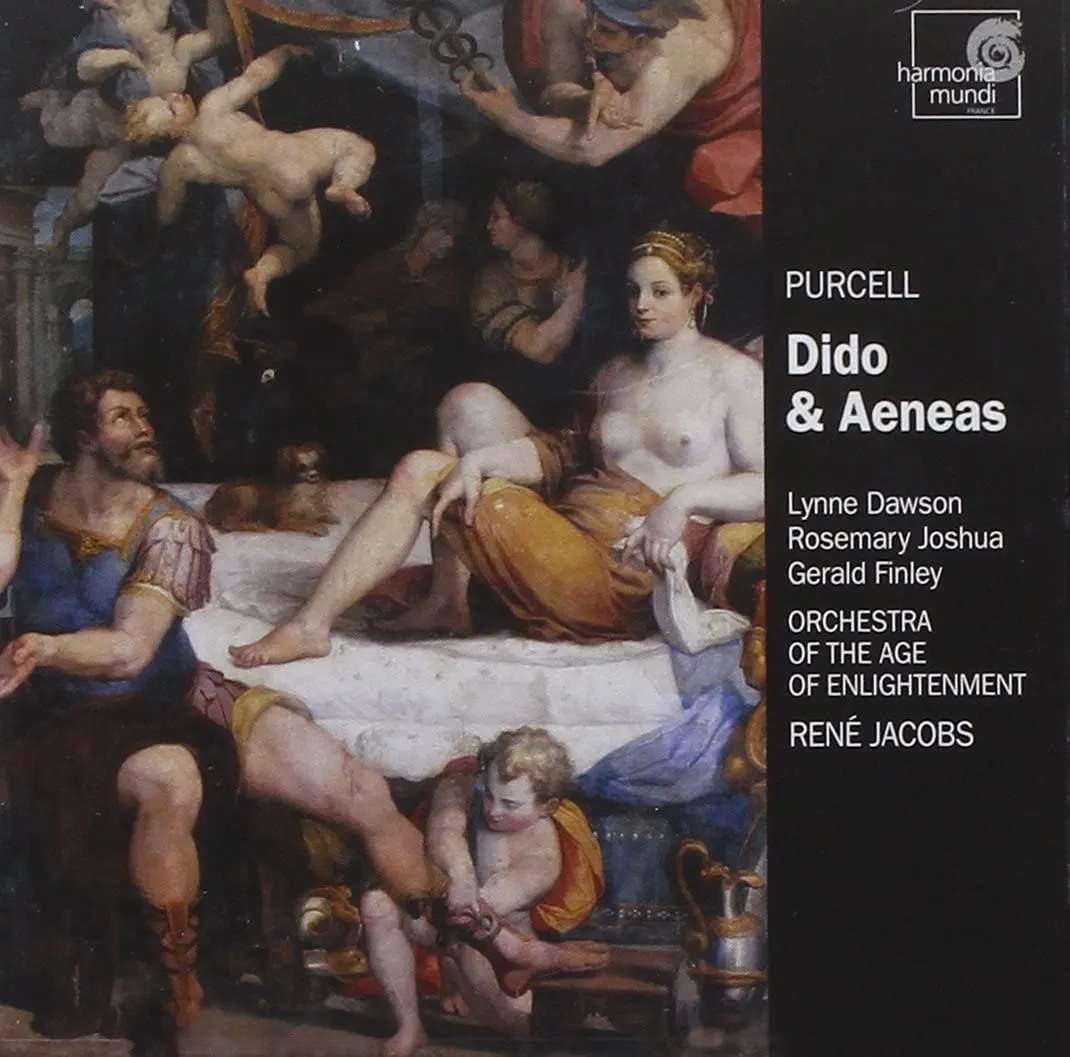
Purcell Dido and Aeneas Lynne Dawson, Rosemary Joshua, Gerald Finley, Susan Bickley, Maria Cristina Kiehr, Dominique Visse, Stephen Wallace, Robin Blaze, John Bowen; Clare College Chapel Choir, Orchestra of the Age of Enlightenment/René Jacobs Harmonia Mundi HMC 901683
With a cast of singers such as the one chosen by René Jacobs for his new recording of Purcell’s opera Dido and Aeneas it would be hard to imagine anything short of a triumph. Nor, in the event, was I disappointed, though opinions will surely differ over the solution offered by Jacobs for the end of Act II. It has long been thought that music for a concluding scene of the act has been lost. Jacobs has adapted music from Purcell’s semi-opera The Fairy Queen to fit the surviving text for ‘The Sorceress and her Enchantresses’ and borrowed its Act III tune to provide the concluding Grove’s Dance indicated in the libretto.
Jacobs paces the drama effectively, seldom underplaying the wide range of emotions contained in the music. Gerald Finley’s Aeneas is nobly declaimed, so much so that we can almost feel sympathy for his predicament as he concedes to Jupiter’s command at the end of Act II. Susan Bickley’s Sorceress, though well characterised, is less menacing than some of her rivals on disc – I’m thinking of Monica Sinclair in the Anthony Lewis recording (Decca) – but Dominique Visse and Stephen Wallace as the First and Second Witches are horridly fiendish. The two leading roles, Dido sung by Lynne Dawson and her lady-in-waiting Belinda by Rosemary Joshua, are rewarding. Dawson, on her strongest form, has as perfect a voice for the role as any I can think of, delivering a beautifully sustained monologue – not quite enough anger, perhaps – and a deeply felt concluding lament, in which she is sensitively supported by the strings of the Orchestra of the Age of Enlightenment. Restrained, clear-textured singing by the Choir of Clare College Chapel, Cambridge, sets the seal on a fine performance. Andrew Parrott (Chandos), William Christie (Erato), Anthony Lewis (Decca) and Geraint Jones (EMI) are among those versions which, in a diversity of respects, offer interesting and mainly satisfying alternatives, but the newcomer has fewer weak moments than any of them.
Read more reviews of the latest Purcell recordings
Nicholas Anderson